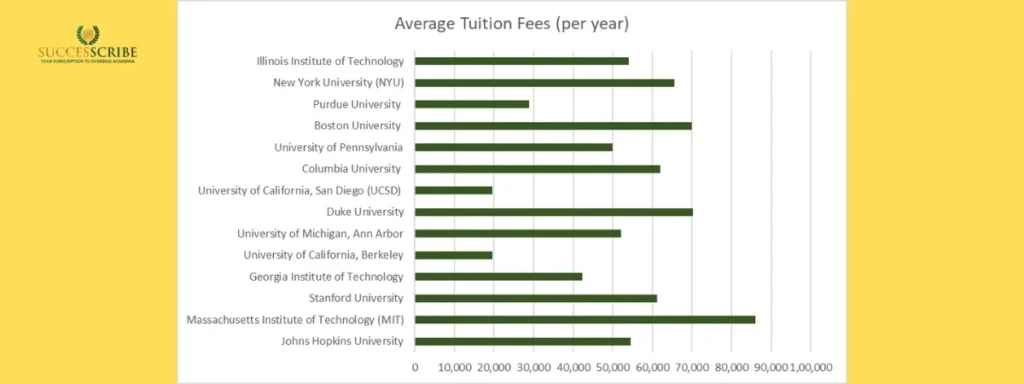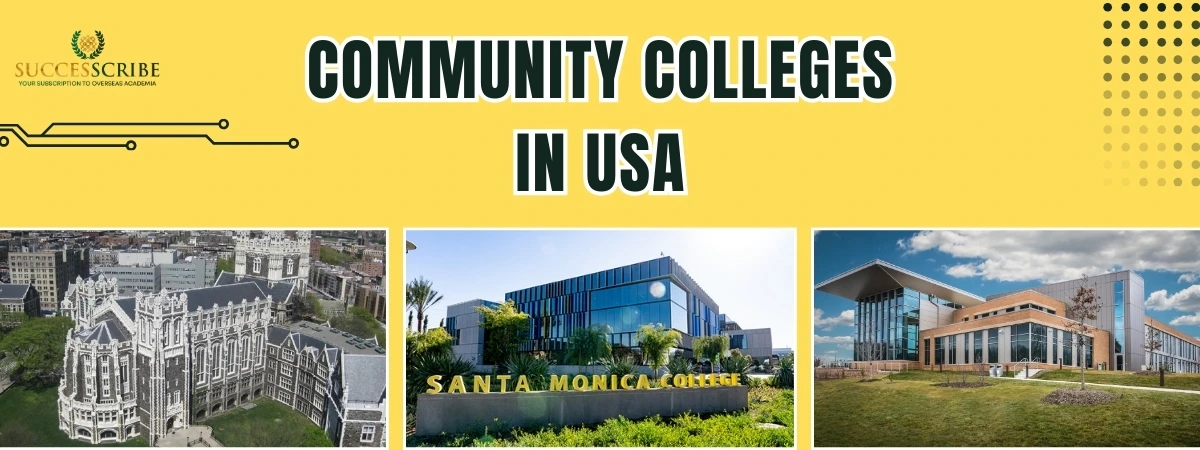Biomedical Engineering represents the fascinating intersection of engineering principles with medical and biological sciences. As healthcare technology continues to advance at an unprecedented pace, the demand for skilled biomedical engineers has surged significantly across the United States. For international and domestic students alike, pursuing a Masters in Biomedical Engineering in USA offers access to cutting-edge research facilities, world-renowned faculty, and unparalleled career opportunities in one of the world’s most innovative healthcare markets.
What is Biomedical Engineering?

Biomedical Engineering (BME) is an interdisciplinary field that combines principles of engineering, biology, and medicine to design technologies and devices that improve healthcare and patient outcomes. It focuses on creating innovative solutions such as medical imaging systems (like MRI and CT scans), artificial organs, prosthetics, surgical robots, and advanced biomaterials.
Biomedical engineers work at the intersection of technology and medicine, collaborating with doctors, researchers, and technologists to solve complex health challenges. Their work has led to life-saving innovations like pacemakers, insulin pumps, and minimally invasive surgical tools.
For students aiming to build expertise in this transformative field, pursuing a masters in biomedical engineering in USA offers world-class education, cutting-edge research opportunities, and access to one of the world’s most advanced healthcare ecosystems.
Key Areas in Biomedical Engineering:
- Medical Devices (e.g., prosthetics, diagnostic machines)
- Tissue Engineering (e.g., artificial organs)
- Biomaterials (e.g., biocompatible implants)
- Medical Imaging (e.g., MRI, ultrasound)
- Rehabilitation Engineering (e.g., robotic rehabilitation devices)
- Clinical Engineering (hospital equipment management)
In simple terms, biomedical engineering bridges the gap between engineering innovation and medical needs to enhance human health and well-being.
Also Read: Chemical engineering in USA
Want to Study in Europe?
Start your journey with Successcribe’s free expert guidance
Book a Free Session NowWhy study Masters in Biomedical Engineering in USA

The United States is one of the top destinations for biomedical engineering education, and here’s why:
| Factors | Details |
|---|---|
| Top Universities | 13 of top 25 globally are in the USA (QS 2024). Top schools: Johns Hopkins (#1), MIT (#2), Stanford (#3). |
| Research Funding | NIH invested over $45 billion in 2023; $4.1 billion towards biomedical research. |
| Job Growth | Projected 5% growth (2022–2032), adding about 1,400 new jobs/year (BLS data). |
| Salaries | Median salary: $101,020/year; experienced professionals earn up to $160,000/year. |
| Healthcare System | 6,000+ hospitals; students access top hospitals like Mayo Clinic, Cleveland Clinic for projects/internships. |
| Specializations Available | Biomechanics, Biomaterials, Medical Imaging, Neuroengineering, Computational Biology, etc. |
| Research Opportunities | 70%+ MS programs offer research-based projects or thesis work; access to top labs like Wyss Institute. |
| ROI (Return on Investment) | Average ROI of 65% within 5 years post-MS (Payscale data). Tuition approx. $40,000–$70,000. |
| International Student Support | 25–30% of MS Biomedical students are international; strong campus support and cultural programs. |
| STEM OPT Extension | Eligible for 36 months total work post-MS (12 months OPT + 24 months STEM OPT). |
| Industry Ecosystem | Home to giants like Medtronic, Johnson & Johnson, Boston Scientific, GE Healthcare. |
Also Read: Bachelor degree in USA for international students
Top Colleges/Universities for MS in Biomedical Engineering in USA

Here’s a table highlighting the top universities for Masters in Biomedical Engineering in USA:
| University | Rank | Average Tuition Fees (per year) |
| Johns Hopkins University | #1 in Biomedical Engineering | $54,550 \ |
| Massachusetts Institute of Technology (MIT) | #1 Overall Engineering | $85,960 |
| Stanford University | #2 in Biomedical Engineering | $61,095 |
| Georgia Institute of Technology | Top 10 in Biomedical Engineering | $42,282 |
| University of California, Berkeley | Top 10 in Biomedical Engineering | $19,674 |
| University of Michigan, Ann Arbor | Top 10 in Biomedical Engineering | $52,000 |
| Duke University | Top 15 in Biomedical Engineering | $70,265 |
| University of California, San Diego (UCSD) | Top 10 in Biomedical Engineering | $19,674 |
| Columbia University | Top 20 in Biomedical Engineering | $62,016 |
| University of Pennsylvania | Top 10 in Biomedical Engineering | $50,000 |
| Boston University | Top 20 in Biomedical Engineering | $69,870 |
| Purdue University | Top 15 in Biomedical Engineering | $28,794 |
| New York University (NYU) | Top 30 in Biomedical Engineering | $65,622 |
| Illinois Institute of Technology | Top 80 in Biomedical Engineering | $54,000 |
Also Read: Best states in USA for international students
Apply to Top European Universities
Make your application simple and stress-free with Successcribe
Get Expert Help NowStudy Cost for MS in Biomedical Engineering in USA

Studying Masters in Biomedical Engineering in the USA includes tuition fees, living expenses, health insurance, books, and miscellaneous expenses.
Here’s an estimated breakdown:
| Expense Category | Annual Cost (in USD) |
| Tuition Fees | $20,000 – $65,000 |
| Living Expenses (housing, food, etc.) | $12,000 – $20,000 |
| Health Insurance | $2,000 – $3,000 |
| Books and Supplies | $1,000 – $2,000 |
| Transportation | $1,000 – $1,500 |
| Miscellaneous | $2,000 |
Tuition Fees for Masters in Biomedical Engineering in USA
Tuition represents the largest expense for most students. The following table outlines average annual tuition ranges:
| Institution Type | Annual Tuition Range | Average Total Program Cost |
| Private Elite Universities | $55,000 – $70,000 | $82,500 – $140,000 |
| Private Mid-tier Universities | $40,000 – $55,000 | $60,000 – $110,000 |
| Public Universities (Out-of-state) | $30,000 – $45,000 | $45,000 – $90,000 |
| Public Universities (In-state) | $12,000 – $25,000 | $18,000 – $50,000 |
Living Expenses
Cost of living varies dramatically depending on location. Below are the annual living expenses (housing, food, utilities, transportation) for different regions:
| Location Type | Annual Living Expenses | Monthly Housing (Shared) | Monthly Food | Transportation |
| Major Metro Areas (NYC, SF, Boston) | $24,000 – $30,000 | $1,200 – $1,800 | $400 – $600 | $100 – $150 |
| Mid-sized Cities (Pittsburgh, Ann Arbor) | $18,000 – $24,000 | $700 – $1,100 | $300 – $500 | $60 – $120 |
| College Towns (Gainesville, Ithaca) | $15,000 – $20,000 | $600 – $900 | $250 – $400 | $50 – $100 |
Additional Expenses
Beyond tuition and living costs, students should budget for:
- Health Insurance: $2,000 – $4,000 annually (mandatory at most institutions)
- Books and Supplies: $1,000 – $2,000 annually
- Laboratory Fees: $500 – $2,000 annually (program-dependent)
- One-time Costs:
- Application fees: $75 – $150 per university
- SEVIS fee: $350
- Visa application fee: $160
- Travel to the US: $800 – $2,000 (region-dependent)
- Initial settlement costs: $2,000 – $3,000
Also Read: Duolingo accepting universities in USA
MS in Biomedical Engineering in USA Eligibility Requirements
Each university may vary slightly, but the general eligibility requirements for Masters in Biomedical Engineering in USA are:
- Bachelor’s Degree: A 4-year undergraduate degree in Biomedical Engineering, Mechanical Engineering, Electrical Engineering, Biology, Physics, or related fields.
- Prerequisite Coursework:
- Calculus and Differential Equations
- Statistics and Probability
- Biology/Physiology
- Chemistry (organic and inorganic)
- Physics
- Programming/Computer Science
- Engineering fundamentals
- GPA: Minimum 3.0 out of 4.0 (around 75%) is typically expected.
- GRE Scores: Some universities require GRE; typical expectations are Quantitative 155+, Verbal 150+.
- English Proficiency Tests:
- IELTS: Minimum 6.5–7.0 bands
- TOEFL: Minimum 90-100 iBT
- Letters of Recommendation: Usually 2–3 academic/professional LORs.
- Statement of Purpose (SOP): Clearly stating goals, motivation, and research interests.
- Resume/CV: Detailed academic and professional background.
Competitive Factors
Beyond meeting minimum requirements, competitive applicants typically demonstrate:
- Research Experience:
- Undergraduate research participation
- Published papers or conference presentations
- Lab skills relevant to biomedical engineering
- Technical Skills:
- Programming languages (Python, MATLAB, R)
- Laboratory techniques
- CAD design
- Data analysis
- Professional Experience:
- Internships at medical device or pharmaceutical companies
- Engineering work experience
- Healthcare exposure
Student Visa for MS in Biomedical Engineering in USA

International students pursuing an MS in Biomedical Engineering in the USA typically require an F-1 student visa. Understanding the visa process is crucial for planning your education journey.
Visa Types
| Visa Type | Purpose | Eligibility | Work Authorization |
| F-1 Student Visa | Primary visa for full-time academic students | Admitted to SEVP-certified school | On-campus: 20 hrs/week during studies (OPT: 12 months + 24 month STEM extension) |
| J-1 Exchange Visitor | Exchange programs, some scholarships | Program-specific requirements | Similar to F-1 with different regulations |
| M-1 Vocational | Vocational or non-academic programs | Admitted to M-1 approved school | Very limited work authorization |
F-1 Visa Application Process
- University Admission: Receive formal acceptance from a SEVP-certified institution
- I-20 Form: After acceptance and financial verification, the university issues Form I-20 (Certificate of Eligibility)
- SEVIS Fee: Pay the mandatory $350 SEVIS (Student and Exchange Visitor Information System) fee
- DS-160 Form: Complete the Online Nonimmigrant Visa Application
- Visa Application Fee: Pay the $160 non-refundable visa application fee
- Visa Interview: Schedule and attend an interview at a U.S. Embassy or Consulate
- Average wait times for interview appointments vary by country (currently 30-120 days)
- Bring required documentation:
- Valid passport (valid 6+ months beyond intended period of stay)
- Form I-20
- DS-160 confirmation
- Application fee receipt
- SEVIS fee receipt
- Financial documentation
- Academic transcripts and standardized test scores
- Passport-sized photos
7. Visa Issuance: If approved, visa processing typically takes 3-5 business days
Also Read: MBA in business analytics in USA
Popular Companies for MS in Biomedical Engineering Graduates in USA
Many biomedical engineering graduates find opportunities in industries like medical devices, pharmaceuticals, and healthcare.
Top Companies Hiring Biomedical Engineers:
- Medtronic
- Johnson & Johnson
- Boston Scientific
- GE Healthcare
- Stryker Corporation
- Abbott Laboratories
- Zimmer Biomet
- Philips Healthcare
- Siemens Healthineers
- Roche Diagnostics
Graduates also work in research institutions, hospitals, government agencies like FDA, and even startups focused on healthcare technologies.
Jobs and Salaries after MS in Biomedical Engineering in USA

Here’s a list of popular job roles along with average salaries after MS BME:
| Job Title | Average Salary (USD/year) |
| Biomedical Engineer | $99,550 |
| Clinical Engineer | $85,000 |
| Biomaterials Developer | $92,000 |
| Rehabilitation Engineer | $87,500 |
| Research Scientist | $102,500 |
| Medical Imaging Specialist | $95,200 |
| Regulatory Affairs Manager | $110,000 |
| Biomechanics Specialist | $93,000 |
| Product Development Engineer | $98,500 |
| Quality Assurance Engineer | $88,000 |
Who Should Go for this Course?
You should consider pursuing MS in Biomedical Engineering if:
- You have a background in Engineering or Life Sciences.
- You are interested in solving healthcare challenges using technology.
- You are passionate about medical devices, biomaterials, tissue engineering, imaging technologies, or biomechanics.
- You want to work in innovative healthcare companies or research labs.
- You seek a high-paying, future-proof career that positively impacts human lives.
Specializations Offered in MS Biomedical Engineering in USA
Most universities offer specializations to focus your degree. Choosing a specialization can help tailor your career path.
| Specialization | Focus Area |
| Biomaterials | Artificial tissues, implants |
| Medical Imaging | MRI, CT, ultrasound technologies |
| Neural Engineering | Brain-machine interfaces |
| Biomechanics | Prosthetics, orthopedics |
| Tissue Engineering | Regenerative medicine |
| Bioinstrumentation | Diagnostic devices, sensors |
| Computational Biology | Computational Biology |
Also Read: MBA in USA without GMAT
Current Trends and Future Outlook in Biomedical Engineering in USA

The field of biomedical engineering continues to evolve rapidly, with several emerging trends shaping both academic programs and career opportunities:
Emerging Specializations in MS Programs
- Artificial Intelligence and Machine Learning in Healthcare
- Computer vision for medical imaging
- Predictive analytics for disease management
- Natural language processing for clinical documentation
- AI-assisted surgical systems
- Biomedical Data Science
- Big data analytics in healthcare
- Patient monitoring systems
- Wearable technology integration
- Precision medicine approaches
- Regenerative Medicine and Tissue Engineering
- 3D bioprinting of tissues and organs
- Biomaterials for tissue scaffolds
- Cell-based therapies
- Organoid development
- Point-of-Care Diagnostics
- Microfluidic systems
- Biosensors and wearable monitors
- Smartphone-integrated diagnostics
- Rapid testing technologies
- Neural Engineering and Brain-Computer Interfaces
- Neuroprosthetics
- Neuromodulation systems
- Cognitive computing interfaces
- Rehabilitative technologies
Industry Trends Impacting Masters in Biomedical Engineering Graduates Education
Here are some industry trends that impact the Graduate Education
- Convergence of Digital Health and Traditional Medical Devices
- Programs increasingly incorporating software development
- More emphasis on interoperability and systems integration
- Growing importance of cybersecurity in medical technology
- Telemedicine and remote monitoring capabilities
- Regulatory Evolution
- Greater emphasis on regulatory affairs training
- Software as a Medical Device (SaMD) considerations
- International regulatory harmonization
- Real-world evidence and post-market surveillance
- Value-Based Healthcare Integration
- Economics and outcomes assessment in engineering curriculum
- Health technology assessment methodologies
- Cost-effectiveness analysis training
- Patient-reported outcomes integration
Also Read: MBA in USA without work experience
Future Job Market Projections for Masters in Biomedical Engineering in USA
Based on industry analyses and Bureau of Labor Statistics data, the following trends are projected for biomedical engineering graduates:
- Highest Growth Subsectors (2025-2030):
- Digital therapeutics: 18-22% CAGR
- AI-enabled medical devices: 15-18% CAGR
- Point-of-care diagnostics: 12-15% CAGR
- Regenerative medicine technologies: 10-14% CAGR
- Remote patient monitoring: 14-17% CAGR
- Geographic Expansion of Opportunities:
- Emerging biotech hubs in Austin, TX; Denver, CO; Seattle, WA
- International opportunities in Singapore, Ireland, Switzerland
- Remote work options increasing for computational specializations
- Evolving Skill Demands:
- Hybrid roles requiring both engineering and data science expertise
- Increased demand for regulatory knowledge across positions
- Growing premium for human factors and user experience skills
- Rising importance of sustainability in medical product design
Also Read: MBA scholarship in USA
ROI (Return on Investment) Analysis for Masters in Biomedical Engineering in USA
Pursuing a Master’s in Biomedical Engineering (MS BME) in the USA is a strategic investment that can offer significant returns in both career advancement and financial growth. Here’s a detailed breakdown of the ROI based on the latest numbers:
Average Cost of Studying MS in Biomedical Engineering in USA
| Expense Category | Cost (USD) |
| Tuition Fees (2 years) | $40,000 – $70,000 |
| Living Expenses (2 years) | $30,000 – $40,000 |
| Health Insurance, Books, Misc. | $5,000 – $8,000 |
| Total Estimated Cost | $75,000 – $118,000 |
Expected Salary After MS in Biomedical Engineering
| Experience Level | Average Annual Salary (USD) |
| Entry Level (0–2 years) | $75,000 – $90,000 |
| Mid-Level (3–7 years) | $100,000 – $130,000 |
| Senior-Level (8+ years) | $130,000 – $160,000 |
ROI Calculation
| Parameter | Value |
| Average Total Cost (Tuition + Living) | $100,000 (approx.) |
| Average Starting Salary | $85,000 (approx.) |
| Salary After 5 Years (Estimated) | $120,000/year |
| Time to Recover Investment | 1.2 to 1.5 years post-graduation |
Conclusion
An Masters in Biomedical Engineering in USA offers world-class education, high salaries, and excellent career growth. With strong industry demand and research opportunities, it’s a smart choice for students aiming to revolutionize healthcare technology.
By choosing the right university, securing scholarships, and leveraging post-study work options, you can build a successful career in this dynamic field.
FAQs
What is the average cost of studying MS in Biomedical Engineering
in the USA?
The average tuition fee ranges between $20,000 and $85,000 per year, depending on the university. Additionally, living expenses can cost around $10,000 to $20,000 annually.
Which are the best universities for Masters in Biomedical Engineering in USA?
Some of the top universities include Johns Hopkins University, MIT, Stanford University, University of Pennsylvania, Columbia University, Northeastern University, Purdue University, NYU, Boston University, and Illinois Institute of Technology.
What is the salary after completing MS in Biomedical Engineering in the USA?
The starting salary typically ranges between $75,000 to $120,000 per year, depending on experience, specialization, and location.
What job roles are available after MS in Biomedical Engineering in the USA?
Popular job roles include Biomedical Engineer, Clinical Engineer, Research Scientist, Quality Engineer, Medical Device Designer, Rehabilitation Engineer, and Regulatory Affairs Specialist.
Is GRE mandatory for applying to MS in Biomedical Engineering in the USA?
Some universities require GRE scores, while many have waived it off in recent years. Always check the specific university’s admission requirements.
What is the job growth outlook for Biomedical Engineers in the USA?
According to the U.S. Bureau of Labor Statistics, biomedical engineering jobs are projected to grow by 5% from 2022 to 2032, faster than the average for all occupations.
Related Post
Masters in automotive engineering in USA
Masters in electrical engineering in USA
Engineering management courses in USA
Aerospace engineering in USA















